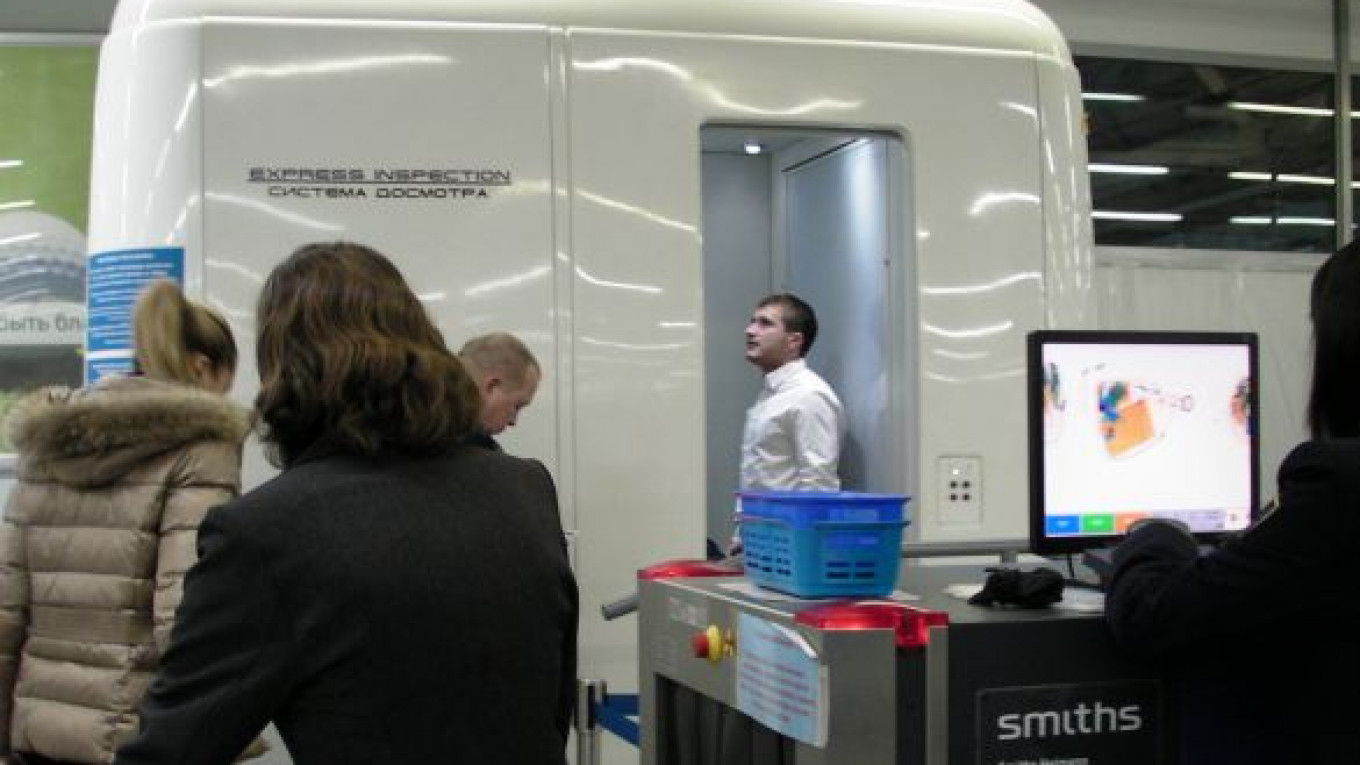NOVOSIBIRSK — While state-owned nuclear giant Rosatom monopolizes government largesse, other nuclear enterprises are forced to sell technology overseas in order to fund research, nuclear scientists said at the Technoprom technological development forum in Novosibirsk on Friday.
Among the innovations coming out of the civil nuclear sector, the Budker Institute of Nuclear Physics has developed a low-dose x-ray system for human embryos, currently used by the Mother and Child clinics in Moscow. It has also produced "the world's best airport inspection system," now installed in Novosibirsk's Tolmachevo Airport, the institute's deputy director Gennady Kulipanov said.
But without state orders, the institute has had to sell licenses to Chinese companies, which now use the Russian technology to mass produce mobile x-ray systems and sell them internationally on a global civil nuclear market estimated to be worth about $850 billion by 2020.
Nikolai Ratakhin, director of the Institute of High Current Electronics, which combines large-scale research labs with production lines, shared a similar experience. "We have managed to work overseas," he said, "but can do little on the domestic market."
"When [officials] call for innovation, I ask myself, what is really the priority — innovation or their traditional partners, such as Rosatom? What is more important?" Ratakhin said, lamenting the state's unquenchable support for its mega-company.
However, not everyone directs blame at government favoritism. Alexander Fertman, scientific director from the Skolkovo Fund's nuclear technology cluster, explained the sector's difficulties in a different way.
A domestic market for high-tech products has not yet formed, he said. Institutes may wish to sell products in Russia, but there is no demand.
The defense market is the exception, where massive state spending manages to trickle down into the wider industry. Ratakhin said he is happy with the existing contracts that his institute has with the Defense Ministry and Rosatom.
One of the latest developments at Ratakhin's institute uses super strong microwave power sources, opening new opportunities in communication and suppression systems.
New devices currently being developed for the Interior Ministry make possible x-ray vision through walls and taking a car out of action just by pointing a high energy beam at it, he said.
Funding is unlikely to dry up in this sector — Deputy Prime Minister Dmitry Rogozin said at the forum that Russia is looking for new defense technologies, new communication systems and new type of armor to enable one Russian soldier to fight against five.
But while damage is the name of the game in the military, safety remains a general concern when it comes to civil nuclear products.
The use of nuclear technology is a calculated risk, Fertman said. In things like medical x-rays or airport inspection systems, the risk is passive and the amount of radiation is negligible — it is less than what people get by spending 10 minutes on a plane at 10,000 meters altitude, he said.
On a cold sleepy morning at Novosibirsk airport, going through the x-ray inspection booth was optional. Those who did probably hoped their flight would be 10 minutes shorter.
Contact the author at g.moukine@imedia.ru
A Message from The Moscow Times:
Dear readers,
We are facing unprecedented challenges. Russia's Prosecutor General's Office has designated The Moscow Times as an "undesirable" organization, criminalizing our work and putting our staff at risk of prosecution. This follows our earlier unjust labeling as a "foreign agent."
These actions are direct attempts to silence independent journalism in Russia. The authorities claim our work "discredits the decisions of the Russian leadership." We see things differently: we strive to provide accurate, unbiased reporting on Russia.
We, the journalists of The Moscow Times, refuse to be silenced. But to continue our work, we need your help.
Your support, no matter how small, makes a world of difference. If you can, please support us monthly starting from just $2. It's quick to set up, and every contribution makes a significant impact.
By supporting The Moscow Times, you're defending open, independent journalism in the face of repression. Thank you for standing with us.
Remind me later.






